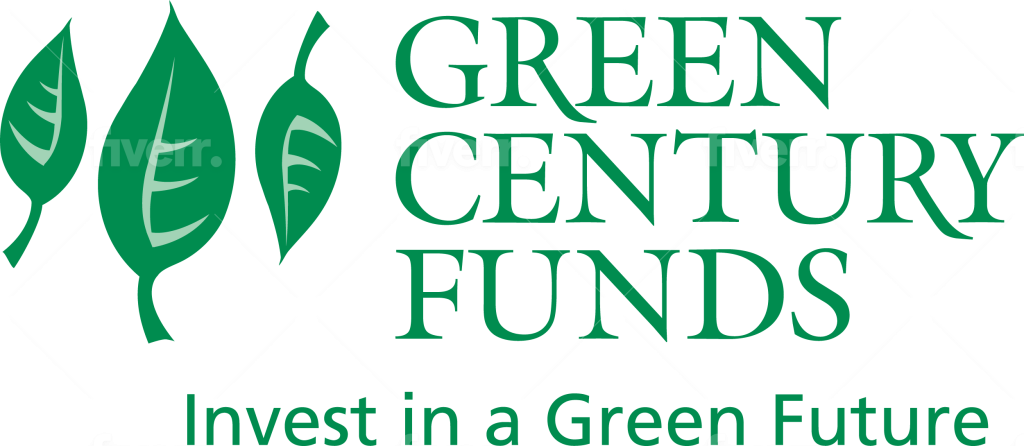Media Contacts:
Pam Podger, ppodger@greencentury.com, 802-299-9495;
Andrea Ranger, aranger@greencentury.com, 781-349-2813
Boston, March 6, 2024 – The U.S. Securities and Exchange Commission (SEC) recently finalized its long-awaited Climate-Related Disclosure rule. Originally proposed two years ago, the rule was crafted in response to investor demand for consistent and comprehensive information about climate-related risks and acknowledgment by federal regulators of such risks to the financial system.
“It’s a step forward, but we feel it’s too little too late. We wish the SEC had held fast with their proposal to have companies report Scope 3, or indirect, emissions because investors need this data to make informed decisions about how companies are addressing their climate-related risks,” said Green Century Funds° President Leslie Samuelrich. “Companies’ indirect emissions often represent the majority of their total emissions. Vigorous opposition by trade groups, including the U.S. Chamber of Commerce and the American Farm Bureau Federation, has restricted investors’ access to vital information.”
The initial draft rule was considered a victory for investors and public interest organizations who were concerned about companies not fully disclosing or downplaying their climate risks. They argued investors could be unknowingly investing billions of dollars in businesses that were not adequately addressing their financial risks.
“Institutional investors have been seeking this information and every day investors would potentially benefit from knowing how the companies in their 401(k), IRAs and other investments are addressing climate risk,” said Samuelrich.
But some business groups opposed the parts of the regulations that require large companies to disclose climate-threatening emissions caused by suppliers and customers and have threatened legal action. However, not including these indirect emissions may result in litigation too. Several nonprofits, including Earthjustice, a leading public interest environmental law nonprofit, indicate they may mount a court challenge if major aspects such as indirect carbon emissions, are dropped from the new ruling.
Regulatory and investor pressure continues
Meanwhile, regulatory and investor pressure continues. The new California Corporate Climate Accountability Act and the European Union’s Corporate Sustainability Reporting Directive, will require larger companies to begin reporting their Scope 3 emissions in 2027 and 2025, respectively.
And while mandatory reporting is preferred, many companies already willingly report the greenhouse gas emissions from their operations and supply chains. Green Century recently has worked with several companies, including Costco, * Kroger, * and Corning* and convinced them to report on their carbon emissions, including Scope 3 emissions.
“Smart companies have recognized climate change as a material risk and already are taking steps to address it. As we say, what gets measured gets managed, and isn’t every investor looking for a well-managed company?” said Samuelrich.
Nevertheless, some important aspects of the rule remain in place. The SEC will require companies to explain how severe weather events such as hurricanes, wildfires, drought and other natural catastrophes impact their strategies, operations, and financial positions when costs to address such events exceed a certain monetary threshold. The rule will also create a framework to improve the consistency of quantifying Scope 1 and 2 emissions data and will phase in a requirement for third-party verification depending on the size of the company.
An investment strategy that incorporates environmental, social and governance criteria may result in lower or higher returns than an investment strategy that does not include such criteria.
About Green Century
°Green Century Capital Management, Inc. (Green Century) is the investment advisor to the Green Century Funds (The Funds). The Green Century Funds are one of the first families of fossil fuel-free, environmentally responsible mutual funds. Green Century hosts an award-winning and in-house shareholder advocacy program and is the only mutual fund company in the U.S. wholly owned by environmental and public health nonprofit organizations.
*As of 12.31.2023, Costco Wholesale Corporation comprised 1.59%, 0.00%, 0.00%, Kroger Company comprised 0.00%, 0.15%, 0.00%, and Corning Incorporated comprised 0.00%, 0.12%, 0.00% of Green Century Balanced Fund, the Green Century Equity Fund, and the Green Century International Index Fund, respectively. As of the same date, other securities mentioned were not held in the portfolios of any of the Green Century Funds. References to specific securities, which will change due to ongoing management of the Funds, should not be construed as a recommendation by the Funds, their administrator, or their distributor.
You should carefully consider the Fund’s investment objectives, risks, charges, and expenses before investing. To obtain a Prospectus that contains this and other information about the Funds please visit www.greencentury.com, email info@greencentury.com, or call 1-800-934-7336. Please read the Prospectus carefully before investing.
Stocks will fluctuate in response to factors that may affect a single company, industry, sector, country, region or the market as a whole and may perform worse than the market. Foreign securities are subject to additional risks such as currency fluctuations, regional economic and political conditions, differences in accounting methods, and other unique risks compared to investing in securities of U.S. issuers. Bonds are subject to a variety of risks including interest rate, credit, and inflation risk.
This information has been prepared from sources believed reliable. The views expressed are as the date of this writing and are those of the Advisor to the Funds.
The Green Century Funds are distributed by UMB Distribution Services, LLC. 235 W Galena Street, Milwaukee, WI 53212. March 2024.


